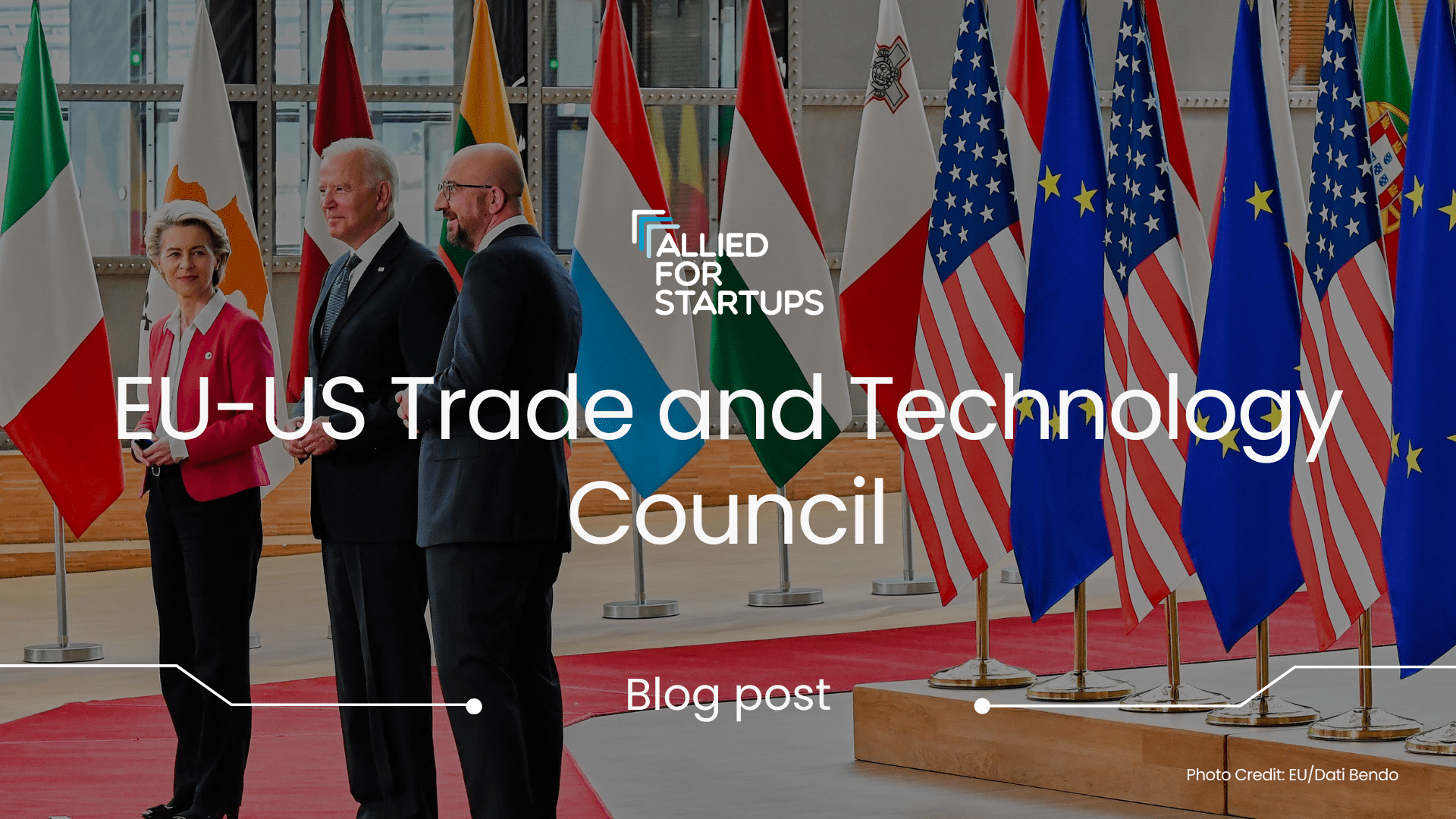EU-US Trade and Technology Council: What is it and why does it matter for startups?
As Brussels and parts of the US were hit by blizzards, another kind of storm is brewing: the next EU-US Trade and Technology Council Summit. On 12 January, US Trade Representative Katherine Tai confirmed that the next EU-US Summit will take place in Washington D.C. on 30 January. But what exactly is the TTC and why does it matter for startups? Look no further, we’ve got you covered!
What is the TTC about?
Let’s go back to the basics first. Established during the EU-US Summit of 15 June 2021 in Brussels, the EU-US Trade and Technology Council (TTC) serves as a forum that brings together high-level EU and US trade and technology principals to coordinate approaches to key global trade, economic, and technology issues, and to deepen transatlantic trade and economic relations. More specifically, the TTC sets out to ensure that trade and technology serve transatlantic societies and economies, strengthen EU and US technological and industrial leadership, and expand bilateral trade and investment. Accordingly, priorities of the TTC include promoting technology standards, trustworthy AI, open, reliable and secure Internet, and combatting disinformation. The forum also supports collaborative research and exchanges and facilitates regulatory policy and enforcement cooperation. To address these priorities and achieve its objectives, 10 TTC Working Groups were established to work on specific areas, including technology standards, ICT security, and data governance.
Why does it matter for startups?
Many projects and topics discussed within this transatlantic forum are relevant to startups. From the first TTC Summit in September 2021 to the most recent one in May 2023, the forum has indeed addressed several challenges, including the ones brought by artificial intelligence (AI). Early December 2022, transatlantic leaders announced a TTC Joint Roadmap for Trustworthy AI and Risk Management and published its first AI Roadmap deliverable: the EU-US Terminology and Taxonomy for Artificial Intelligence. Additionally, given the TTC’s willingness to spur EU-US cooperation on AI, three AI expert groups were launched to address cooperation on AI standards and monitor existing and emerging AI risks.
Besides AI, the TTC also sets out to deepen transatlantic cooperation on online platforms, quantum, cybersecurity for startups and SMEs, fighting misinformation, and digital skills. Regarding the latter, a task force on Talent for Growth was created to promote the development of the talent and skills that are critical for the EU and the US to compete in emerging and existing technologies.
What is the startup perspective on the TTC?
At Allied for Startups, we closely monitor global policy developments that are relevant to the startup ecosystem, particularly when these involve the European Union and the United States discussing tech matters. We advocate, amongst many other things, for an open and fair Internet for all, a global interconnected economy, investment in digital skills, and fighting disinformation (you will find our priorities for the 2024 EU elections in our Manifesto). This is exactly why we welcome the TTC’s work on these topics. At the same time, however, efficiency, effectiveness, and harmonisation should be and remain central in the work of the TTC for the forum to address the interests of the startup ecosystem. It is vital for both EU and US startups that the work carried out in the TTC and its Working Groups facilitates and contributes to streamlining transatlantic cooperation. In this context, having 10 Working Groups bears the risk of producing unsynchronised outcomes. Let’s take AI, one of the TTC’s key topics, as an example. AI is covered in different Working Groups from distinctive angles, ranging from common standard setting to data governance and tech platforms as well as promoting small businesses’ access to digital technologies, to name a few. The risk here is that Working Groups turn into silos that each produce outcomes that do not align, harming the creation of a harmonised and efficient transatlantic startup ecosystem. We therefore agree with the current Belgian Presidency of the Council of the EU that recently warned against unharmonised digital diplomacy within the EU. If not paid attention to, the TTC may become a potential example of this fragmented approach.
Startups significantly contribute to meeting the TTC’s objectives by creating jobs, fostering innovation, and contributing to economic recovery and growth. Unfortunately, only one out of the 10 Working Groups specifically mentions startups amongst its target audiences. Given that the TTC aims to ensure that trade and tech serve transatlantic societies and economies, strengthen technological and industrial leadership, and expand bilateral trade and investment, and startups can be a key contributor to these objectives, startups must get a more prominent seat at the TTC’s table.
What’s next?
As the next Summit is scheduled for 30 January, we will keep a close eye on the discussions to make sure the interests of startups don’t get lost in the transatlantic snowstorm. Stay tuned for the next TTC weather forecast!
Photo Credit: EU/Dati Bendo

